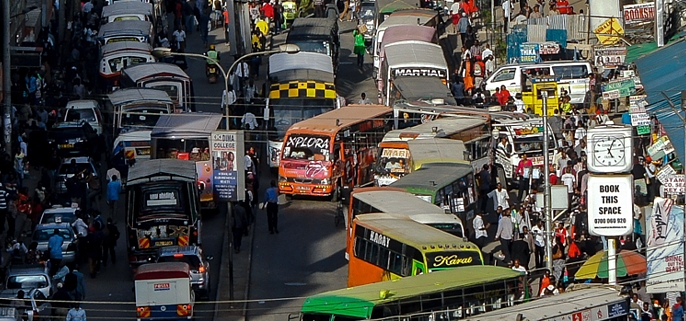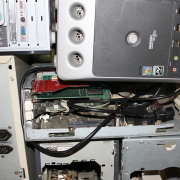Tremendous Business Opportunities in Africa
There are many reasons to invest in the countries of the African continent.
According to the report “Africa Waste Management Outlook“, published this year by the United Nations Environment Programme (UNEP), the waste management practices on the continent are far from ideal: Backlogs in waste collection coverage and disposal to open dumps or unsanitary landfills are widespread. But these practices generate also a huge potential of opportunities in waste as a secondary resource.
Experts believe that in the African urban areas the generation of municipal solid waste amounts to 125 million tons per year (of which four percent is currently being recovered), the authors of UNEP’s report informed. This volume alone should have a total resource value of 8.0 billion US-Dollar. The estimation “is based on only a limited set of waste streams, and only on the direct value of the resources at a specific point in the value chain, and therefore understates the true value of all waste streams across the continent,” the reader can learn. “The value of the potentially recoverable resources, that are not currently being collected and are essentially lost to the economy, is estimated at 7.6 billion US-Dollar per year. Moving waste up the waste management hierarchy is essential if this potential for Africa is to be realized.”
The increased economic strength in new economic regions like African countries and the accompanying growth in consumption “puts further pressure on raw materials and underscores the limits of our linear economic model – ‘take, make, dispose’,” the African Business Magazine wrote in October last year. “But there are promising developments underway, too, as innovators around the world pave the way for a ‘circular’ economy to emerge at all levels, giving rise to new business models and economic opportunities.”
As reported by the publication, some companies are considering their products’ life cycles, including recycling, as early as the design phase. “Certain cities are organizing industrial parks where the waste of one company becomes the input of another one. National governments have started banning plastic bags and experimenting with repair tax incentives. Consumers can rent blue jeans instead of buying them. And urban farms are sprouting out of plastic bottles in Cameroon.”
“The circular economy tackles problems at their roots by reducing our dependence on finite products,” the team of African Business Magazine is convinced. “It shifts our economies towards a more virtuous circle, designing out waste at all levels while restoring our manufactured, human, social, natural and financial capital.” Through this type of management it addresses complex problems and it should not be seen as a simple, standardized solution. It would be a “collaborative effort in which everyone has a role to play”.
The conversation about Africa is shifting to one about opportunities, prospects, ventures and creativity, an article informed on the occasion of the “World Economic Forum on Africa” in 2016. This was not news to companies that have paid close attention to the continent and invested there, Tarek Sultan Al Essa (Chief Executive Officer and Vice-Chairman, Board of Agility, Kuwait) gave account. The fast-growing youth population and the urbanization were expected to drive over 50 percent of Africans to cities by 2050, and Africa’s formalizing economy were all well known. “These trends and other developments have driven a half-century or more of growth in Africa, and will continue to do so,” the author predicted – and named six reasons to invest in the continent. For example, Africa could lead in sustainable development by developing flexible fuel grids that generate power with a mix of abundant wind, solar, hydro and bioenergy, alongside conventional fuels such as oil and gas. Business leaders are hungry for vibrant new markets, he stated. “There are too few places where entrepreneurs and businesses with ideas and an appetite for risk can bring value and find long-term growth if they are persistent, creative and determined”, Tarek Sultan Al Essa wrote. “But there’s something else they know: Africa is still such a place.”
Photo: pixabay
GR 3/2018









